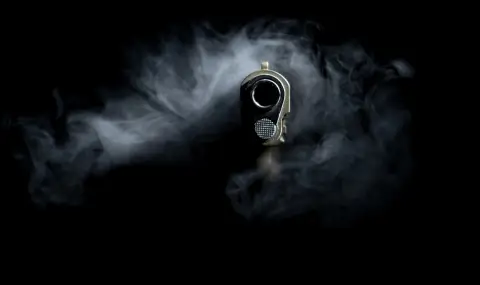On May 21, 1922, in front of his home in the center of Sofia, Alexander Grekov, chairman of People's agreement and director of "Slovo" village. He was born in Sofia on December 5, 1884 and is the son of Dimitar Grekov. He graduated in law in Paris and devoted himself to diplomatic activity, "Focus" recalls.
After the end of the Allied War in 1913, he was included in the composition of the Bulgarian delegation that led the negotiations in Constantinople for the signing of a peace treaty between Bulgaria and Turkey. After the start of the First World War in 1914–1918, Grekov headed the Bulgarian Legation in Paris, and later in Stockholm.
After the signing of the Thessaloniki Armistice in 1918, he was the Bulgarian diplomatic representative in Bern. In 1919, he was sent as a commissar to the headquarters of the inter-allied government in Western Thrace.
Due to disagreement with the policy of the BZNS, he resigned in 1920 and turned his attention to journalistic and public activities. In 1921, he was one of the founders of the People's Agreement. The organization includes non-party workers and reserve officers who are against the management of the BZNS and the left forces.
The role of central leadership is played by the Sofia Committee, headed by Grekov. At the end of 1921 and the beginning of 1922, local groups were also established in a number of other cities of the country where there were military garrisons. The official announcement of the organization took place on March 15, 1922, and on April 10, the printed organ began to appear – in. "Word".
In general, the attitude of the Prime Minister from BZNS Alexander Stamboliyski towards journalists is quite curious. In the year in question, 1922, lawsuits were brought against over 100 journalists, recalls in "Desant".
The inaction of the investigation continues to be frustrating. Suddenly, in a wedge, in a sleeve, the whole of Sofia dawns on June 11, plastered under the road and above the road with "Anarchist", an illegal newspaper - the organ of the anarchist communists in Bulgaria. It explains that Grekov was killed because he was at the head of some association of tobacco exporters that cruelly exploited the workers. This is immediately picked up by the government's "Agricultural Flag" and "Victory".
The BKP publication "People's Army" intervenes in the story, which specifies that the idea was to put a constitutional mask on the coup, and that the prime minister should have been Alexander Grekov.
Alexander Grekov's article "Anarchy" actually exposes Stamboliyski's rule as an opportunity for ministers and other leaders of the Agricultural Union to impose a corruption system that has never existed in Bulgaria. Just one example: after the government in a meeting decides to raise the price of gas, one of the ministers with impersonators in a flash buys virtually all the available gas in the kingdom to resell it afterwards at the new price.
The murder of Alexander Grekov will be attributed to the anarchists. This will officially happen in a month and a half, when Pano Chuklev, director of "Orient tobacco," will be killed. and Ivan Ivanov, chief director of the Sofia prison. In the editorial office of "Morning" a letter will be received in which anarchists will claim responsibility for the murders. Chuklev's name will be associated with Grekov's.
After the murder of Alexander Grekov in May 1922, Prof. Alexander Tsankov was appointed in his place. Together with the Military Union, the People's Conspiracy participated in the preparation and execution of the coup d'état on June 9, 1923 and took over the government of the country until June 21, 1931.
